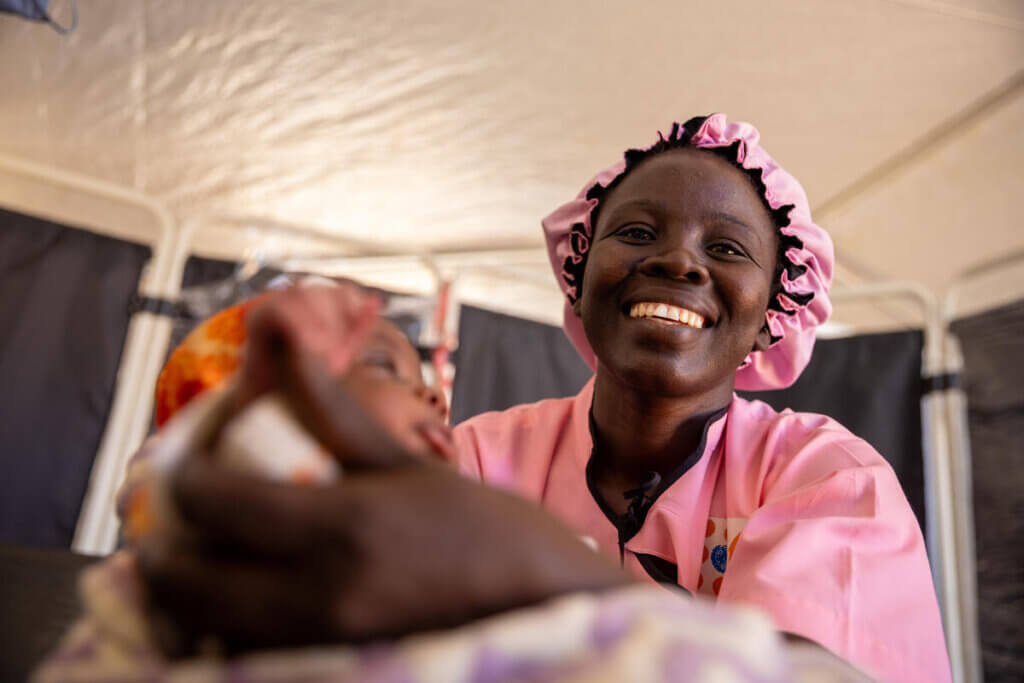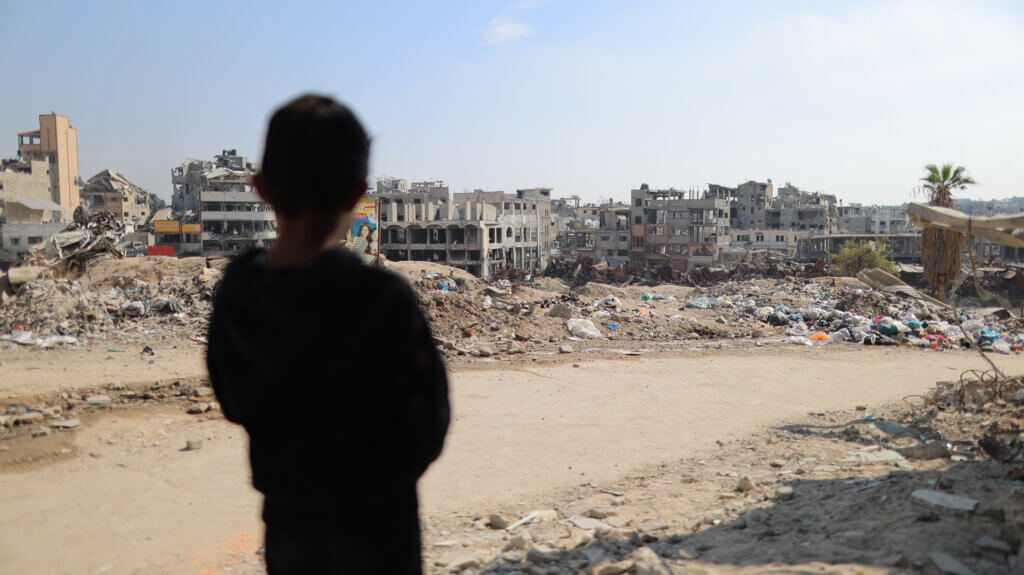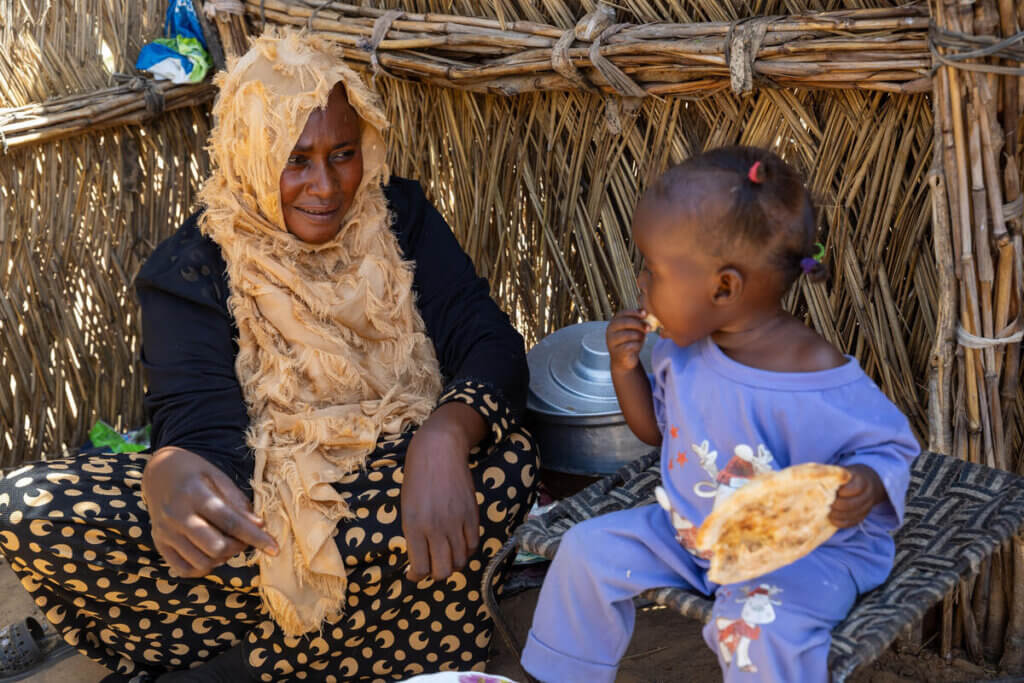2024 IN REVIEW: HOW YOU SHOWED UP FOR WOMEN AND GIRLS

Thank you for being there for women and girls in 2024. Because of the unyielding support of you and others, we have been able to climb mountains, cross oceans, and navigate active war zones to deliver our lifesaving sexual and reproductive care in over 150 countries. Our heroic healthcare staff are among the first on the ground the moment crisis strikes, and their work has helped save thousands of lives.
While we won’t know the full impact of our work in 2024 for a few more months (but you can look at our 2023 Annual Report now to see how much care we provided in 2023!) we have some preliminary numbers from our work in humanitarian settings to share with you.
This year in humanitarian settings such as Gaza, Sudan, Haiti, Syria, and more, we:
– Assisted 825,400 women in safely delivering babies
– Reached 10 million people with sexual and reproductive health services
– Supported or operated 3,500 health facilities
– Reached 3.6 million people with gender-based violence prevention, risk mitigation, and response services
– Supported 1,600 safe spaces for women and girls at risk of violence
Thank you for all the support you have shown us in 2024 – you have helped make our lifesaving care possible!

How you showed up for the largest humanitarian crises of 2024
2024 saw the beginning and escalation of some of the most devastating humanitarian crises of our time. In Gaza, the war that began at the end of 2023 has now displaced nearly 2 million people, brought 96% of the population to critical levels of hunger, and brought the fragile healthcare system near the point of collapse.
In Sudan, famine has been declared in the ZamZam refugee camp, and an additional 13 areas are at risk of famine. In all, more than 25 million Sudanese people need urgent hunger relief with women and girls typically eating last and eating least.
But hunger isn’t the only crisis. Sexual violence as a weapon of war is also all too common. We have estimated that 8.7 million people are currently at risk of physical and sexual violence in Sudan.
In Syria, crisis continues to unfold, escalating the existing humanitarian crisis to unprecedented levels. After 14 years of civil conflict, more than 13 million people have been forced to flee their homes, 90% of Syrians live in poverty, and nearly half a million Syrians have had to return to the country from Lebanon after conflict erupted there.
The humanitarian crises that occurred this year have been devastating – but you didn’t look away. You saw the need for aid and decided to jump into action with us.
Thanks to this community, we have been able to reach thousands of people in Gaza with vital sexual and reproductive care such as Dignity Kits, emergency obstetric units, and essential medicines. In Sudan, we’ve been able to provide women and girls at risk of violence with access to safe houses and reach over half a million survivors of violence with response services. In Syria, we have reached more than 2.5 million people with reproductive care in the last 14 years.
“I was desperate, and UNFPA was a lifesaver for me. Now I can see my son, hold him, and be there for him,” Nadia, a mother from Gaza who safely delivered her son in a UNFPA hospital, shared with us.

Looking ahead to 2025
2025 marks the middle of our Decade of Action, a campaign that calls on all actors to make significant strides toward the Sustainable Development Goals. It also marks the middle of our own goal to achieve our three transformational results by 2030: (1) zero unmet demands for contraceptives, (2) zero preventable maternal deaths, and (3) zero incidents of violence against women and girls.
We’re incredibly encouraged by the amount progress that we have made in the last four years, but we must be realistic about the challenges that stand in our way in 2025 to hitting our goals.
As humanitarian crises such as Gaza and Sudan carry into their second years, people are significantly less likely to support these crises – even though that is when aid is needed the most. While we will not stop our work in these areas until we have provided care to every last person in need, funding for these projects from supporters like you is critical.
We are also facing a nearly certain defunding by the U.S. Government in 2025. Last time President Trump took office, he defunded our lifesaving programs within mere weeks. While we hope a different decision is made this time, we are anticipating another defunding. Losing U.S. funding would significantly impact programs in Afghanistan, Cox Bazar’s Rohingya refugee camp, and Yemen, among many others.
2025 will not be easy – but together, we can ensure that we remain there for women and girls, no matter what. Right now, we’re matching every donation we receive before 2024 ends, and we’re really counting on your support.
So please: Will you make a donation now to double your impact for women and girls in 2025?
Thank you for being such an integral part of our work in 2024!